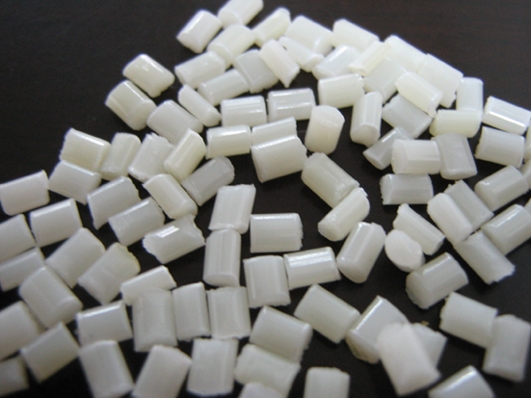Chemical Engineering
What is Chemical Engineering?
Chemical engineering is the branch of engineering that deals with the application of physical science (e.g. chemistry and physics), and life sciences (e.g. biology, microbiology and biochemistry) with mathematics, to the process of converting raw materials or chemicals into more useful or valuable forms. In addition to producing useful materials, modern chemical engineering is also concerned with pioneering valuable new materials and techniques - such as nanotechnology, fuel cells and biomedical engineering.
Chemical engineering is applied in the manufacture of a wide variety of products. The chemical industry proper manufactures inorganic and organic industrial chemicals, ceramics, fuels and petrochemicals, agrochemicals (fertilizers, insecticides, herbicides), plastics and elastomers, oleochemicals, explosives, detergents and detergent products (soap, shampoo, cleaning fluids), fragrances and flavors, additives, dietary supplements and pharmaceuticals. Closely allied or overlapping disciplines include wood processing, food processing, environmental technology, and the engineering of petroleum, glass, paints and other coatings, inks, sealants and adhesives.
- What Do Chemical Engineers Do?
 Some chemical engineers make designs and invent new processes. Some construct instruments and facilities. Some plan and operate facilities. Chemical engineers have helped develop atomic science, polymers, paper, dyes, drugs, plastics, fertilizers, foods, petrochemicals... pretty much everything. They devise ways to make products from raw materials and ways to convert one material into another useful form. Chemical engineers can make processes more cost effective or more environmentally friendly or more efficient. As you can see, a chemical engineer can find a niche in any scientific or engineering field.
Some chemical engineers make designs and invent new processes. Some construct instruments and facilities. Some plan and operate facilities. Chemical engineers have helped develop atomic science, polymers, paper, dyes, drugs, plastics, fertilizers, foods, petrochemicals... pretty much everything. They devise ways to make products from raw materials and ways to convert one material into another useful form. Chemical engineers can make processes more cost effective or more environmentally friendly or more efficient. As you can see, a chemical engineer can find a niche in any scientific or engineering field.
- Modern Chemical Engineering
The modern discipline of chemical engineering encompasses much more than just process engineering. Chemical engineers are now engaged in the development and production of a diverse range of products, as well as in commodity and specialty chemicals. These products include high performance materials needed for aerospace, automotive, biomedical, electronic, environmental, space and military applications. Examples include ultra-strong fibers, fabrics, dye-sensitized solar cells, adhesives and composites for vehicles, bio-compatible materials for implants and prosthetics, gels for medical applications, pharmaceuticals, and films with special dielectric, optical or spectroscopic properties for opto-electronic devices. Additionally, chemical engineering is often intertwined with biology and biomedical engineering. Many chemical engineers work on biological projects such as understanding biopolymers (proteins) and mapping the human genome. The line between chemists and chemical engineers is growing ever more thin as more and more chemical engineers begin to start their own innovation using their knowledge of chemistry, physics and mathematics to create, implement and mass produce their ideas.
- Chemical Industry
The chemical industry comprises the companies that produce industrial chemicals. It is central to modern world economy, converting raw materials (oil, natural gas, air, water, metals, minerals) into more than 70,000 different products.
TOP 5 Companies in 21st century
| COMPANY, HEADQUARTERS | Chemical Sales, billions | Rank | Country |
|---|---|---|---|
| BASF SE, Ludwigshafen, Germany | $65.3 | 1 | |
| Dow Chemical, Midland, Mich. | $53.5 | 2 | |
| INEOS, Lyndhurst, UK | $43.6 | 3 | |
| LyondellBasell, Houston, Texas | $42.8 | 4 | |
| Formosa Plastics, Taiwan | $31.9 | 5 |

 Hard hit by the global economic slowdown in 2009, the European polymer blends and alloys market ...
Hard hit by the global economic slowdown in 2009, the European polymer blends and alloys market ...